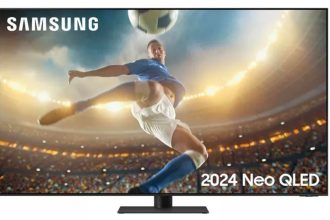Concluding one of the most tumultuous Pride Months since its inauguration by President Clinton in 1999, Starbucks
SBUX
In a statement provided to media on June 26, SBWorkers United said the strike will continue through the week after it was launched Friday, June 23, at the company’s flagship Seattle Roastery. By the start of this week, over 150 stores representing some 3,000 workers are expected to join the effort.
Claiming the company is “one of the worst violators of labor law in modern U.S. history” and alleging over 1,300 violations currently being prosecuted by the federal government, the union declares it is fighting for queer and trans rights in the workplace.
It calls for consistent hours so workers can meet the company’s minimum to access healthcare, including gender-affirming care; health and safety in stores, including gender-neutral bathrooms; and an “end to intimidation tactics” that it claims are part of the company’s union-busting campaign.
Missing in the statement is any mention of Pride decorations which Wall Street Journal and many other outlets reported as the spark that ignited the strike, though there is an oblique mention of “removing symbolism for workers” in a statement by Starbucks staffer Jacklyn Gabel.
However, the SBWorkers United’s website is more incendiary, claiming the company is preventing partners from putting up pride decorations along with other complaints.
“Starbucks is scared of the power that their queer partners hold, and they should be. Their choice to align themselves with other corporations that have withdrawn their ‘support’ of the queer community in the time we need it most shows that they are not the inclusive company they promote themselves to be,” said Moe Mills, 3.5 year shift supervisor from Richmond Heights, MO.
The union is “loud and proud,” but the strike and its strikers may draw little sympathy from customers who simply want their morning Starbucks fix.
Despite the union’s effort to reframe the strike around broader workers’ concerns, it is anchored in consumers’ minds to the in-store Pride decorations controversy, positioning the strike as a mere symbolic gesture over a symbol and in the words of Shakespeare, “sound and fury, signifying nothing.”
Starbucks Stance
Numbers tell the tale. Fewer than half of the company’s 333 union-organized shops – and only about 3,000 of its 8,000 unionized workers – are taking part. And union shops make up a mere 3% of the company-operated 10,347 North American stores and the same percentage of its 248,000 North American employees.
Despite the union’s claims, Starbucks is among one of the 842 businesses rated as the “Best Place to Work for LGBTQ+ Equality,” according to the Human Rights Campaign Foundation’s Corporate Equality Index, which gave it a 100% score in 2022. And Newsweek gives it similar honors in 2023.
While corporations may not always live up to their higher principles in the particulars, Starbucks is committed to diversity and inclusion, as it states in its latest annual report:
“We invest in the well-being – the mental, physical and financial health – of every partner through our practices, policies and benefits. This work is grounded in the belief that we are at our best when we create inclusive and welcoming environments, where we uplift one another with dignity, respect and kindness.”
And it is one of the few corporations that offer comprehensive transgender medical benefits. In a survey conducted among 500 corporations by the International Foundation of Employee Benefit Plans, just over one-fourth (27%) covered gender-reassignment surgery. And only 6% offered cosmetic surgery benefits, such as facial feminization and Adam’s apple reduction. Starbucks covers this too.
Starbucks tried to put clarity around the controversy in an internal memo posted on the company’s website by CEO Laxman Narasimhan and reported by the AP. Note: The company did not respond to my request for comment before posting.
“We want to be crystal clear: Starbucks has been and will continue to be at the forefront of supporting the LGBTQIA2+ community, and we will not waver in that commitment,” he stated. “As such, we strongly disapprove of any person or group, seeking to use our partners’ cultural and heritage celebrations to create harm or flagrantly advance misinformation for self-interested goals.”
He further reiterated that there has been no corporate policy change around employee benefits or Pride displays – the Pride flag is currently flying over the company’s headquarters.
Push Forward, Not Backwards
It is hard to square SBWorkers United’s complaints against the company’s LGBTQ stance, especially when GLAAD finds support for LGBTQ equal rights is at an all-time high, reaching 84% in its 2023 survey conducted in February among 2,500 adults.
Yes, there are misunderstandings. For example, 50% reported, “nonbinary and transgender people are new and unfamiliar to me,” and 55% said they were “confused by all the different letters and terms to describe individuals who comprise the LGBTQ community.”
But angry and contentious demonstrations outside people’s favorite Starbucks– their welcoming “third place” beyond home and work where people can gather, relax and talk – isn’t helping the Pride movement. This strike is a sad way for the small minority of Starbucks employees to end Pride Month and may hurt more than help their cause.
Sarah Kate Ellis, GLAAD president and CEO, makes it clear. “When people are exposed to responsible representations of LGBTQ people, hearts and minds change.”
Read the full article here





